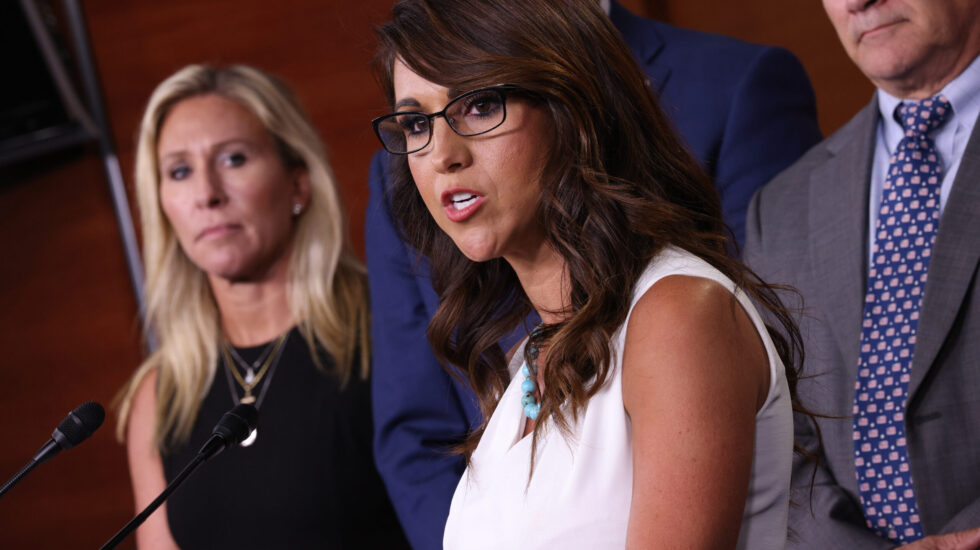Lauren Boebert loves conspiracy theories.
The Colorado Congresswoman has pedaled QAnon talking points, dabbled in anti-science rhetoric, and thinks anyone left of center is a socialist.
But this week, The Associated Press reported on a Boebert scandal very much grounded in reality. Her husband, Jayson Boebert, made nearly a million dollars consulting for an energy company in 2019 and 2020. Boebert reportedly failed to disclose the money on her candidate form. She wrote “N/A” when asked to identify Jayson’s income from ‘Boebert Consulting’.
The omission raises questions about a potential conflict of interest. Boebert sits on the House Natural Resources Committee and, according to The Washington Post, she’s “been a staunch advocate for the energy industry during her first six months in office, introducing a bill in February seeking to bar the president from issuing moratoriums on oil and gas leasing and permitting on some federal land.”
Boebert documented the consulting income only after the Federal Elections Commission asked her office about a series of suspicious transactions involving campaign money. “The FEC sought explanation of why the campaign sent Boebert $6,000 via Venmo in four separate transactions on May 3 and June 3. The campaign told the FEC the transactions were errors and have been refunded,” according to the AP.
But the FEC asked for proof, telling the treasurer of Boebert’s campaign to “inform the Commission of your corrective action immediately in writing and provide photocopies of any refund checks and/or letters reattributing or redesignating the contributions in question.”
Kedric Payne, senior director of ethics for the Campaign Legal Center, told The Post that Boebert’s failure to properly disclose her husband’s income violates federal law.
“Voters have a right to know what financial interest their elected officials might be beholden to,” he said.
Payne said the matter should be reviewed by the Office of Congressional Ethics to determine whether the discrepancy arose from an oversight or an intentional failure to disclose. An intentional failure “could be criminal,” he said, with the potential to result in “large fines and possible imprisonment.”



